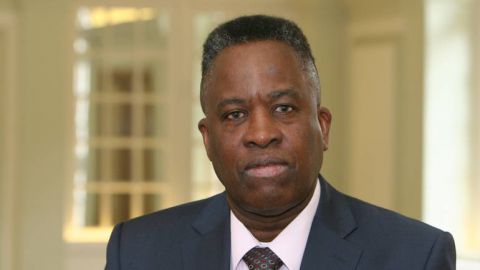End Water Poverty member, the British Medical Association’s international committee chair Terry John answers your questions on Water Action Month!

The BMA has been a member of End Water Poverty (EWP) since 2007. What are the aims of the campaign?
End Water Poverty is a global coalition that is calling for action to end the crisis in water and sanitation. In 2016, more than 650 million people still don’t have clean, safe water and 2.3 billion people don’t have access to adequate sanitation — in fact, more people have mobile phones than have access to a safe toilet. As a result, more than 500,000 children die every year from diarrhoea caused by unsafe water and poor sanitation, more than the child deaths in any given year from tuberculosis, AIDS and meningitis combined. Despite this, the crisis was given low-priority status by international agencies, a situation which continued for many years. But we have begun to see changes. The recognition of the human rights to water and sanitation by the United Nations in 2010 was followed by a number of global agreements whereby decision-makers committed to tackle the crisis. In response to this change in attitudes, EWP launched ‘Keep Your Promises’, a campaign that focuses on holding Governments to account and ensuring that the human rights to water and sanitation are realised.

March 2016 is Water Action Month. Can you tell us more about it and how to get involved?
Coming under the ‘Keep Your Promises’ campaign, Water Action Month will be EWP’s biggest mobilisation to date, a month of sustained global action, coinciding with World Water Day on 22 March. EWP members will speak with a united voice to hold decision-makers to account on their promises to realise the human rights to water and sanitation. Doctors can play a vital role in helping to put this message across. Action could be as simple as including a link to the campaign website in your email signature, join the online solidarity march, or writing an opinion piece for a local or national newspaper. Asking your local MP to submit a parliamentary question about the Government’s commitments on water and sanitation may even help to push the issue up the ministerial agenda.
Where do water and sanitation fit in the post-2015 development agenda?
In 2015, after much lobbying over the past three years, the water, sanitation and hygiene sector successfully advocated for the inclusion of the human rights
to water and sanitation in the Sustainable Development Agenda 2030 and the ‘global goals’. Goal 6 calls for universal access to clean water and safe sanitation. Prioritising action on goal 6 will not only safeguard the lives and health of billions, but also enable early sustainable progress to be made on many of the other goals — further proof, if it were needed, that water is indeed the stuff of life.
ENDS.
View the original post on the BMA’s website. Download the resources, such as the poster and the flyer and use these in your advocacy work!